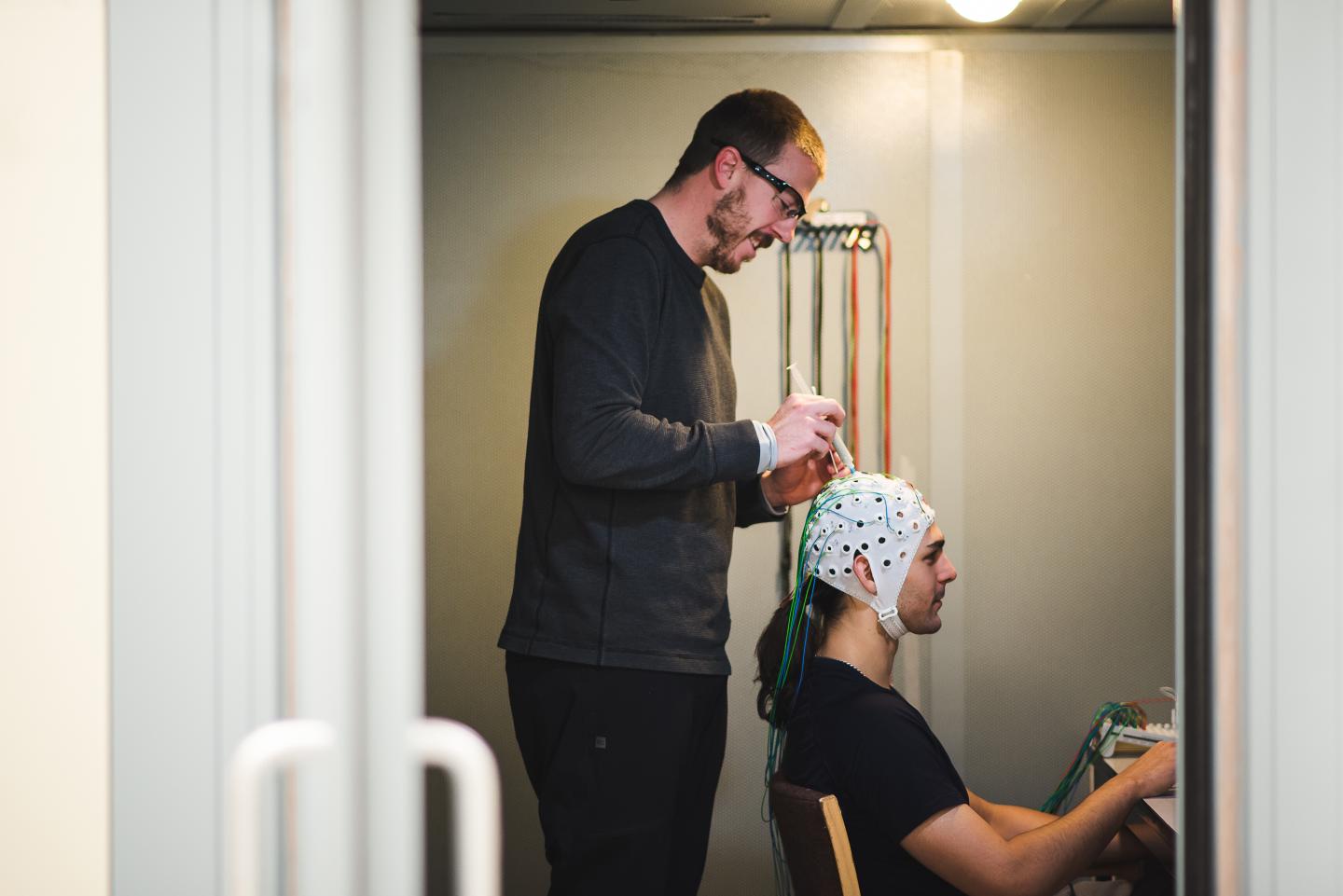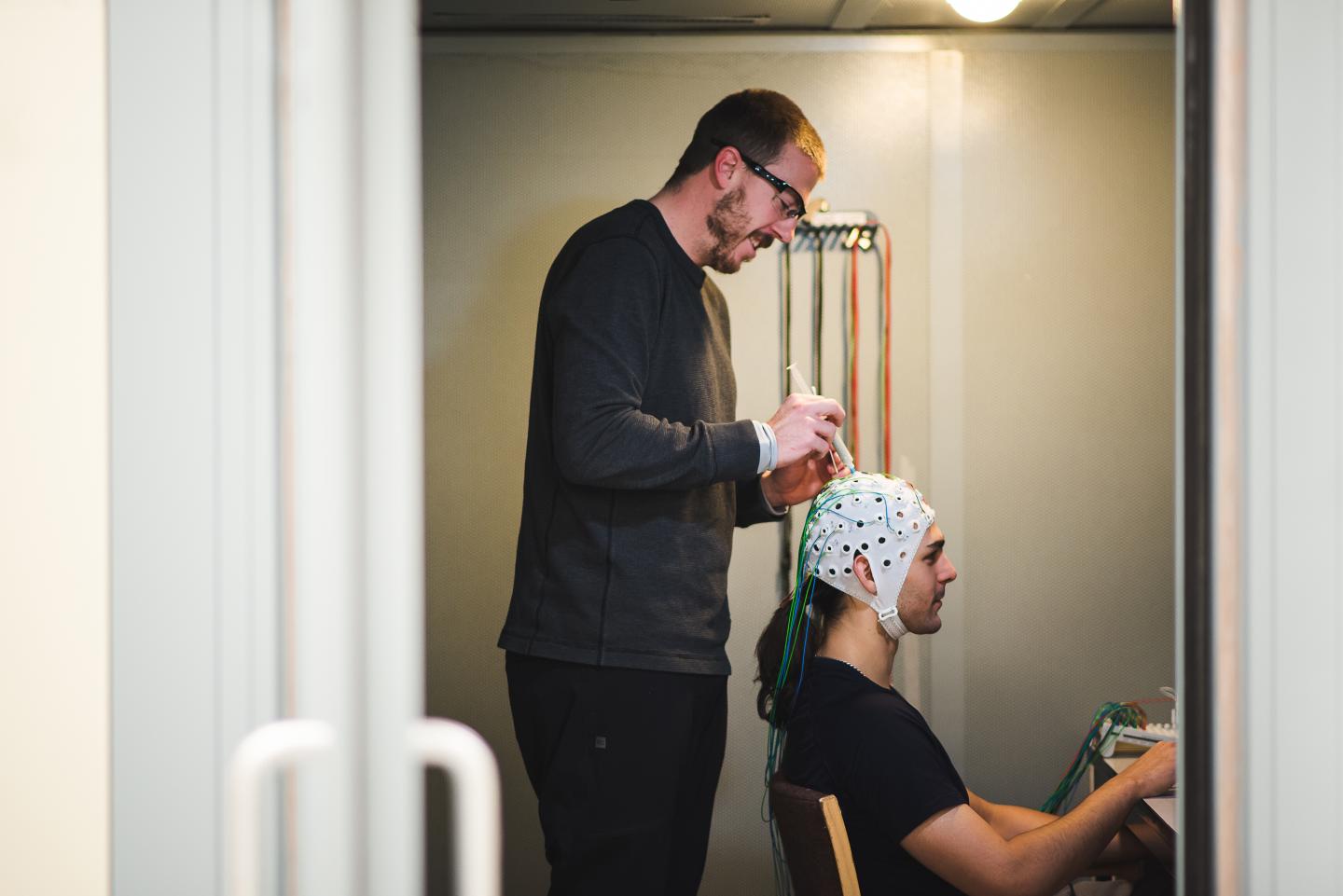
Credit: Dawn Graves
EDMONTON (Monday, December 5, 2016)–You're in a crowded lecture theatre. Around you are a million tiny distractions: someone rustling in their bag; a door opening for latecomers; a phone vibrating or lighting up; another listener having a snack; a pen dropping on the floor. However, you remain focused, concentrating on the speaker, listening and engaging with the talk.
But, how do you do that?
New research shows that when we're paying attention to something, that information is processed in a continuous manner. But when we're trying to ignore something, we perceive and experience information in waves or frames, like scenes in a movie.
Cognitive neuroscientist Kyle Mathewson and Sayeed Kizuk, graduate of the bachelor of science program in honours psychology and current master of science student, recently published research explaining the phenomena.
"We are better at prioritizing certain times when we are not attending to that space in the world," explains Mathewson, assistant professor in the Department of Psychology at the University of Alberta and Neuroscience and Mental Health institute affiliate. "This research shows that the two processes for attending to space and attending to time interact with one another."
Our brains oscillate at many different frequencies, explains Mathewson, and each frequency has a different role.
"This study examined 12 hertz alpha oscillations, a mechanisms used to inhibit, or ignore, a certain stimulus thereby allowing us to focus on a particular time or space that we are experiencing, while ignoring others," says Mathewson.
For example, if there is a repetitive stimulus in the world, such as the sound of someone's voice in a lecture theatre, the alpha waves lock onto the timing of that stimulus, and the brain becomes better at processing things that occur in time with that stimulus. The new findings show, surprisingly, that this happens more in places we are ignoring.
"We are bombarded with so much information and stimulation that we can't possibly process it all at once. Whether it be commuting, engaging in our work, studying for a class, or working out, our brains select the useful information and ignore the rest, so that we can focus on a single or a few items in order to make appropriate responses in the world. This research helps explain how," says Mathewson.
Mathewson is now working on stimulating the brain at alpha frequencies in order to understand how to improve brain function in meaningful ways. For instance, improving one's ability to focus and perform in real-world situations, such as working on a project or riding a bike.
"To better understand how the brain and mind works can help us improve performance and attention in our everyday lives, to improve our safety, increase our work productivity, do better at school, and perform better in sports," explains Mathewson. "We're developing and testing novel, portable technologies to make this possible."
The paper, "Power and phase of alpha oscillations reveal an interaction between spatial and temporal visual attention" was published in the Journal of Cognitive Neuroscience in fall 2016.
###
The University of Alberta Faculty of Science is a research and teaching powerhouse dedicated to shaping the future by pushing the boundaries of knowledge in the classroom, laboratory, and field. Through exceptional teaching, learning, and research experiences, we competitively position our students, staff, and faculty for current and future success.
Media Contact
Katie Willis
[email protected]
780-248-1215
@ualberta
http://www.ualberta.ca
############
Story Source: Materials provided by Scienmag





